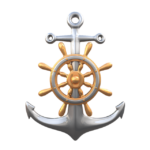Boats are a common mode of transportation and recreation for many people around the world. However, for some individuals, the thought of being on a boat can evoke feelings of fear and anxiety.
This fear can be debilitating and prevent individuals from enjoying the many benefits that boating has to offer. In this article, we will explore the science behind fear of boats and provide tips for overcoming this fear.
The Physiological Effects of Fear
 Fear is a natural response to perceived danger or threat. When we experience fear, our body goes into fight or flight mode, which is an automatic response designed to protect us from harm. This response triggers the release of adrenaline and other stress hormones, which can cause physical symptoms such as increased heart rate, rapid breathing, sweating, and muscle tension.
Fear is a natural response to perceived danger or threat. When we experience fear, our body goes into fight or flight mode, which is an automatic response designed to protect us from harm. This response triggers the release of adrenaline and other stress hormones, which can cause physical symptoms such as increased heart rate, rapid breathing, sweating, and muscle tension.
These physiological effects are designed to prepare our body to either fight off the perceived threat or flee from it. However, when these responses are triggered in situations where there is no real danger, such as being on a boat, they can be overwhelming and lead to feelings of panic and anxiety.
The Role of Genetics in Fear
Research has shown that genetics can play a role in the development of fear and anxiety disorders. Studies have identified specific genes that may be associated with an increased risk for developing these conditions.
For example, a study published in the Journal of Anxiety Disorders found that variations in the serotonin transporter gene were associated with an increased risk for developing specific phobias, including a fear of water or boats.
The Role of Past Experiences in Fear
Past experiences can also play a significant role in shaping our fears and anxieties. Traumatic experiences such as accidents or near-drowning incidents while on a boat can create lasting negative associations with boating.
Even less severe experiences such as feeling seasick or uncomfortable while on a boat can contribute to feelings of anxiety and avoidance in the future.
The Role of Media in Fear
Media can also influence our fears and attitudes towards boats. Negative portrayals of boats in movies, television shows, and news reports can create a sense of danger and fear around boating.
For example, movies such as Jaws and Titanic have portrayed boats as dangerous and potentially deadly. News reports of boating accidents or incidents can also contribute to a sense of fear and anxiety around boating.
The Role of Culture in Fear
Cultural beliefs and attitudes towards boats can also influence our fears. In some cultures, boats are associated with danger or death, which can create a sense of fear and avoidance.
For example, in some Asian cultures, there is a belief that it is unlucky to travel by boat on certain days or during certain times of the year. This belief can contribute to a sense of fear and avoidance around boating.
Overcoming Fear of Boats
If you are struggling with a fear of boats, there are several strategies that you can use to overcome this fear. These include:
- Gradual exposure: Gradually exposing yourself to boats in a controlled environment can help desensitize you to the fear.
- Relaxation techniques: Practicing relaxation techniques such as deep breathing or meditation can help reduce feelings of anxiety.
- Cognitive-behavioral therapy: This type of therapy focuses on changing negative thought patterns and behaviors associated with the fear.
- Hypnosis: A professionally recorded hypnosis track can provide additional support and guidance for overcoming your fear.
In conclusion, fear of boats is a common issue that can be caused by a variety of factors including genetics, past experiences, media, and culture. However, with the right strategies and support, it is possible to overcome this fear and enjoy the many benefits that boating has to offer. If you are struggling with a fear of boats, don’t hesitate to seek professional help and take steps towards facing your fear.





